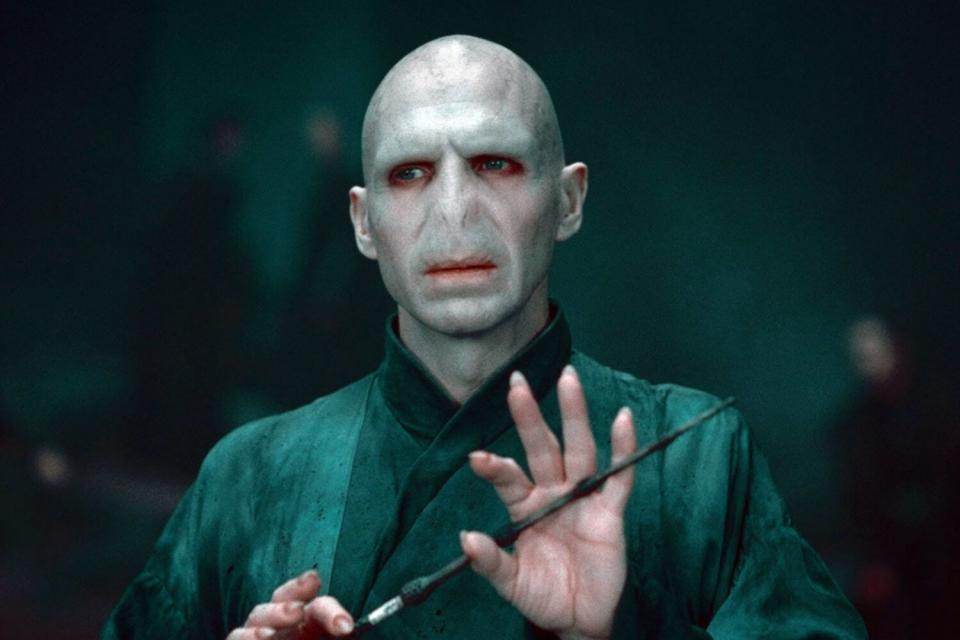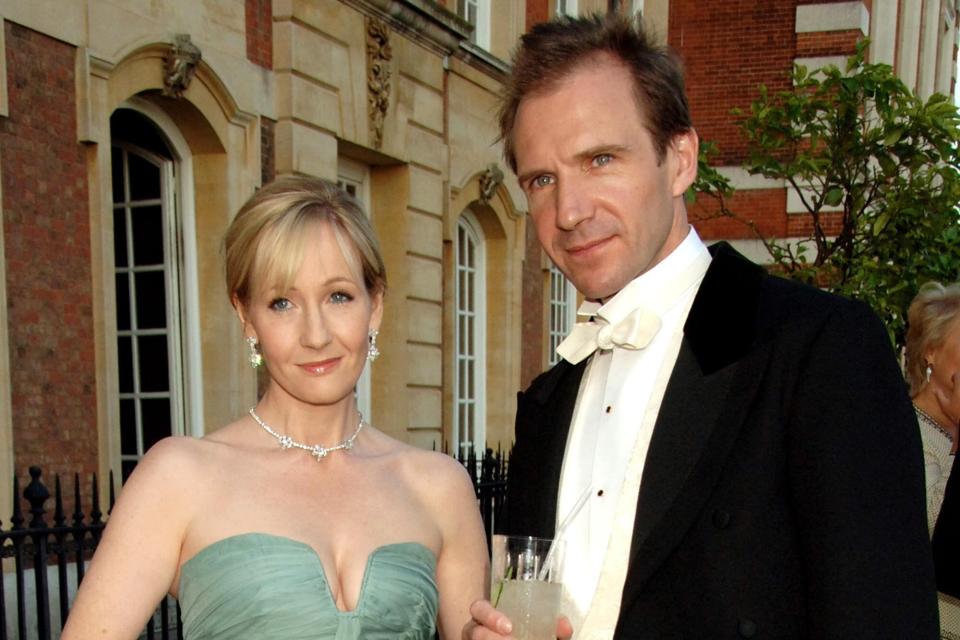Harry Potter star Ralph Fiennes thinks 'verbal abuse' against J.K. Rowling 'is disgusting'

- Oops!Something went wrong.Please try again later.
- Oops!Something went wrong.Please try again later.
Ralph Fiennes, the actor behind Voldemort in the Harry Potter movies, again voices his support for Harry Potter author J.K. Rowling, another person who shall not be named in certain circles.
The once universally beloved writer behind the best-selling wizarding world franchise has become a widely controversial figure for consistently spreading anti-trans rhetoric and views on social media and in writing she's published. Rowling stated last November on Twitter that, as a result, she's "now received so many death threats" she could "paper the house with them."
Fiennes, who previously came to Rowling's defense when the controversy was heating up in 2021, spoke to The New York Times in a recent interview in which he mentions the Harry Potter creator.
"J.K. Rowling has written these great books about empowerment, about young children finding themselves as human beings. It's about how you become a better, stronger, more morally centered human being," the actor said. "The verbal abuse directed at her is disgusting, it's appalling. I mean, I can understand a viewpoint that might be angry at what she says about women. But it's not some obscene, über-right-wing fascist. It's just a woman saying, 'I'm a woman and I feel I'm a woman and I want to be able to say that I'm a woman.' And I understand where she's coming from. Even though I'm not a woman."

Warner Bros./Courtesy Everett Collection Ralph Fiennes as Lord Voldemort in the 'Harry Potter' movies
Many LGBTQ activists have called Rowling a TERF, meaning she's part of the trans-exclusionary radical feminist movement — a movement that supports women's rights but does not acknowledge trans women as women. In the past, she appeared to condemn the trans rights movement as "doing demonstrable harm in seeking to erode 'woman' as a political and biological class and offering cover to predators like few before it," she once wrote. Rowling has said she supports LGBTQ individuals, including trans people.
Last year, Fiennes told The Telegraph in the U.K., "I can't understand the vitriol directed at her. I can understand the heat of an argument, but I find this age of accusation and the need to condemn irrational. I find the level of hatred that people express about views that differ from theirs, and the violence of language towards others, disturbing."
Rowling has experienced a lot of criticism for her views, including from prominent LGBTQ organizations like GLAAD and The Trevor Project. But those critiques seem to make her more adamant about sharing this kind of rhetoric.
Apart from the criticism, police in Scotland made inquiries after activists shared photos of themselves standing in front of Rowling's home with her address on display. No arrests have been made.

Dave M. Benett/Getty Images 'Harry Potter' actor Ralph Fiennes appears next to author J.K. Rowling.
Recently, British talk-show host Graham Norton left social media after a spat between Rowling and musician Billy Bragg that played out on Twitter involving Norton's comments. Norton was asked during a moderated Q&A about Rowling and the idea of cancel culture. Norton didn't name Rowling nor did he directly answer the question, but he offered a thoughtful response.
"You read a lot of articles in papers by people complaining about 'cancel culture,'" he said. "You think, in what world are you canceled? I'm reading your name in a newspaper, or you're doing an interview about how terrible it is to be canceled. I think ['cancel culture'] is the wrong word. I think the word should be accountability."
Norton went on to say when he, as a celebrity not involved with an issue, responds to an issue, he then becomes a part of that conversation, which is something he's trying to avoid. "If people want to shine a light on those issues, and I hope that they do, then talk to trans people," he continued. "Talk to the parents of trans kids. Talk to doctors, talk to psychiatrists. Talk to someone who can illuminate this in some way."
Alas, Norton became the focal point after Rowling and Bragg sparred on Twitter, and he has since left the platform.
Sign up for Entertainment Weekly's free daily newsletter to get breaking TV news, exclusive first looks, recaps, reviews, interviews with your favorite stars, and more.
Related content:

